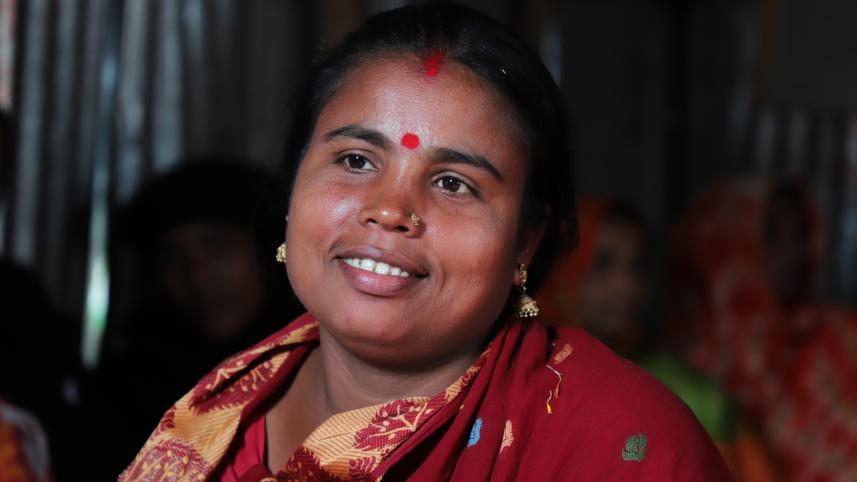The honour in borrowing

Anjali Rani Sarker made the firm decision to never borrow again since she was greatly disrespected while taking micro-credit from a NGO years ago. The 35-year-old woman of Ambari Kashipur village in Dinajpur’s Parbatipur upazila knew she would face the pressure of paying 125 taka per week for 46 weeks since she had borrowed 5000 taka from a micro-credit offering NGO to purchase a goat in 2008. “I wasn’t expecting any disgrace while taking the loan,” she says.
Anjali used to earn by crafting ropes and baskets while her husband was a day labourer. On scheduled days of paying off weekly instalments, a collector used to visit her house and stayed until she could pay him.
On one such day, she could not manage her instalment money and her husband was taking a long time to return home. Therefore, she decided to borrow from a neighbour. “I felt so insulted as the collector waited at my house the whole day,” she explains. “He followed me when I went out to borrow, as if I was trying to escape.” She managed to pay off all her debt and decided not to borrow again.
In 2010 she came under the NETZ livelihood programme and became a part of an association of other women. She then started generating money and saving some from her own income.
In five years, Anjali along with 414 members of 21 associations in Mominpur union made savings of around 10 lakh taka and constituted the Mominpur Union Women Development Federation. The federation received additional funds from NETZ and finally recruited their own accountant to oversee their money transparently and began offering loans. “It is our own collective fund. You don’t feel disgrace in borrowing from own funds,” Anjali says. The members enjoy taking loans and pay off their debts in time as the profit is shared among all members.



 For all latest news, follow The Daily Star's Google News channel.
For all latest news, follow The Daily Star's Google News channel.
Comments